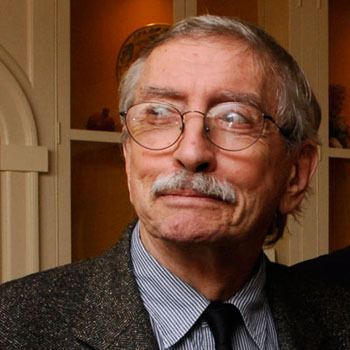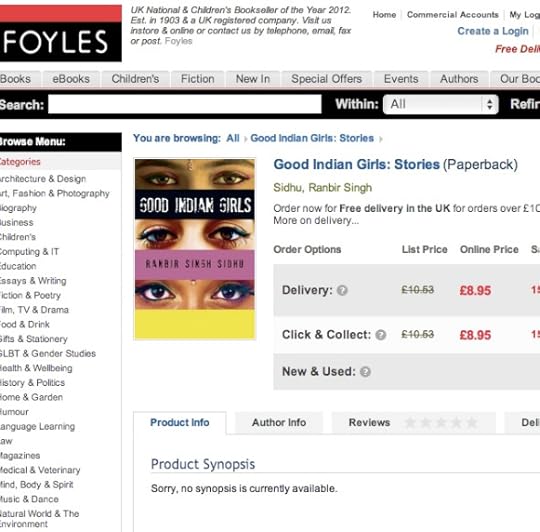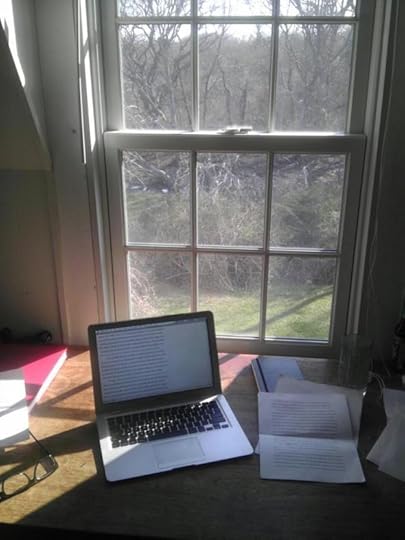Ranbir Singh Sidhu's Blog, page 9
April 26, 2013
Walking the Beach, Montauk

April 24, 2013
Praise from Edward Albee
 “When I first met Ranbir Sidhu, he was a resident at the Edward F. Albee Foundation in Montauk and while there, he displayed tremendous talent and dedication. His work takes risks, is often daring and imaginative, and I appreciate the intelligence he brings to his craft. I look forward to reading his new collection of stories, GOOD INDIAN GIRLS.”
“When I first met Ranbir Sidhu, he was a resident at the Edward F. Albee Foundation in Montauk and while there, he displayed tremendous talent and dedication. His work takes risks, is often daring and imaginative, and I appreciate the intelligence he brings to his craft. I look forward to reading his new collection of stories, GOOD INDIAN GIRLS.”
—Edward Albee, author of Who’s Afraid of Virginia Woolf?


April 23, 2013
Richard Nash and the commerce of publishing
“Publishing is a word that, like the book, is almost but not quite a proxy for the “business of literature.” Current accounts of publishing have the industry about as imperiled as the book, and the presumption is that if we lose publishing, we lose good books. Yet what we have right now is a system that produces great literature in spite of itself. We have come to believe that the taste-making, genius-discerning editorial activity attached to the selection, packaging, printing, and distribution of books to retailers is central to the value of literature. We believe it protects us from the shameful indulgence of too many books by insisting on a rigorous, abstemious diet. Critiques of publishing often focus on its corporate or capitalist nature, arguing that the profit motive retards decisions that would otherwise be based on pure literary merit. But capitalism per se and the market forces that both animate and pre-suppose it aren’t the problem. They are, in fact, what brought literature and the author into being. “
Read the whole article at the Virginia Quarterly Review.


April 21, 2013
Tim Waterstone and the future of the book
“Robert McCrum, former literary editor of the Observer, rang me about a year ago,” Waterstone recalls. “He said, ‘Tim, I’m doing yet another piece on “Whither the book?” For God’s sake give me something new.’ I said, ‘I’ve done this so often.’ He said, ‘Well, have a go.’ While I was talking, I walked to the other side of the house, where my daughter’s bedroom is. She’s 19, at Oxford, reading English. I walked in, and I could hardly move for books. And she couldn’t be more technically savvy … so I rang her and asked, ‘Why have you got so many physical books?’ She said, ‘I like having a Biro in my hand, scribbling notes down the side.’ So I see the two forms sitting side by side.”
Read the whole story here.


April 18, 2013
On pre-order at Foyles UK
April 16, 2013
Thinking About Boston
I spent yesterday listening to the news of the Boston Marathon bombings on the radio, because I have no TV where I’m currently staying. If I had TV, I would have been glued to it, watching obsessively. But this time, I kept turning the radio off, and walking upstairs to try and work. The work didn’t happen, and I knew it wasn’t going to. I found it hard to go back to the radio. Each time I heard someone talk about all the limbs lost, I froze inside, feeling ill. I’ve stood next to a car bomb when it exploded and know something of the terror it causes. Everything disappears, your body shifts into auto-pilot, and you start running. A feeling of pure, blind panic fills you from head to foot. I also lived through 9/11 in New York City and vividly recall walking around for a week feeling numb inside, no longer sure what day it was.
The deep sadness I felt at the news of the bombing, and the slowly mounting death toll, was infected by another kind of sadness. I kept thinking about the bombs that still regularly go off in the streets of Baghdad and Kabul, and in the provinces of Iraq and Afghanistan. Some of those bombs kill as many as sixty people in a single blast and injure hundreds more, and they happen because of the instability caused by our invasions. I was never a supporter of the war in Iraq, though I did support the war in Afghanistan and believed we had a purpose in that fight. It makes me feel ill today thinking that every week in both those countries there are bombs exploding far more powerful than the two bombs that devastated the Boson Marathon. Car bombs, IEDs, mortars, mines, our own bombs.
The last thing I want to do is diminish the terror and pain and loss and grief felt by those in Boston, and by their family and friends in other parts of the country or the world. I’m grieved and shocked by it, and want the perpetrators brought to justice, be they home-grown right wing nutcases or Al Qaida-sympathsizing goons. But as I sit here thinking of the loss and grief, I cannot help but think of my own complicity in the ongoing loss and grief of families in Iraq and Afghanistan, however worthy or unworthy the cause might have been. In some parts of the world, it’s Boston every day, and though I don’t like to admit it, as an American, I helped to make that happen.
So my thoughts are with the people of Boston. They deserve our good wishes and prayers. But they are also with grieving families in Iraq and Afghanistan, and in other battlefields in this past decade of wars. Let us try and build a decade where no one has to grow up with the sound of bomb blasts ringing in their ears.


April 15, 2013
Editing, Montauk-style
Finishing final edits on a new story called ‘The Tears of Paavo Laht.’ It won’t be in the US release of the collection, but will appear this fall in the new issue of the UK-based magazine The Happy Hypocrite. The theme of the issue is ‘Freedom’ and Lynne Tillman is the guest editor. She kindly asked me to write something for it.


April 12, 2013
From an Encyclopedia of Fictional Characters
A magazine asked me to write a freeform encyclopedia entry for Arturo Bandini a while back, which I happily did; but then they changed the format on me, to something considerably more dull and straightforward, and wanted me to do my work over again. This I didn’t do, and they let it slide and never paid me. So I’m posting it here, because I thought it was rather good, just as it was.
Arturo Bandini
“Ah Camilla! When I was a kid back home in Colorado it was Smith and Parker and Jones who hurt me with their hideous names, called me Wop and Dago and Greaser, and their children hurt me, just as I hurt you tonight. They hurt me so much I could never become one of them, drove me to books, drove me within myself, drove me to runaway from that Colorado town, and sometimes, Camilla, when I see their faces I feel the hurt all over again, the old ache there, and sometimes I am glad they are here, dying in the sun, uprooted, tricked by their heartlessness, the same faces, the same set, hard mouths, faces from my home town, fulfilling the emptiness of their lives under a blazing sun.”
Ask the Dust, John Fante
Not an immigrant himself, but the child of immigrants, pugilistic, angry, often starving, a wordsmith of an underbelly Los Angeles, a chronicler of a dark side of the moon city in the thirties, passionate, purposeless, bigoted, supremely egotistical, and cut through with more self-loathing than quartz in a California schist, this is Arturo Bandini, John Fante’s magnificent creation and alter-ego in his novel Ask The Dust. He steps onto the stage like many an unlettered peasant torn between two continents. “You are a coward, Bandini,” he says of himself, “a traitor to your soul, a feeble liar before your weeping Christ. This is why you write, this is why it would be better if you died.” Openly modeled on Fante’s own younger self, Bandini is a soul in agony, driven to prove himself, too poor to be a successful drunk, too self-conscious to bed a hooker, and almost choking on his own self-regard. Much as Fante remained a writer’s writer for most of his life, valiantly obscure until he was championed by Charles Bukowski, Bandini is an outsider’s outsider, his immigrant’s rage more closely twinned to Dostoyevsky’s murderous protagonist Raskolnikov. But unlike Raskolnikov, or many of the other deadbeat literary anti-heroes that bear the mark of Bandini’s paternity, there is a wild, unstoppered energy to Arturo, a lifeforce that plunges him headlong into the world, even if it’s often a world of his own hopeless dreams and unreasonable desires. His faults are the follies of too much passion, of caring too deeply, of youth in the moment of explosion, and as much as he is a mirror to torment, he is equally a mirror to a more brilliant world, whose cracked shards shimmer ever so briefly with the grace of a life lived to its very utmost.


April 11, 2013
Reinventing Michel Houellebecq and the Knitting Circles of the Future
Or my take on a tweaked title:
The Possibility of a Purl
Michel Houellebecq‘s unrelenting examination of the erotic possibilities of knitting circles in the distant future, when the only pleasure that humanity has left is the deadening and never consummated sexual charge of watching us knit each other’s clothes.
Check out others at MobyLives.


April 10, 2013
Straight to Hell, or the Thatcher Years
Ranbir Singh Sidhu's Blog
- Ranbir Singh Sidhu's profile
- 5 followers









